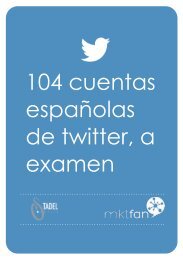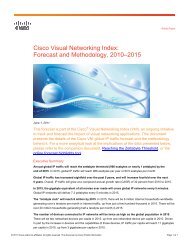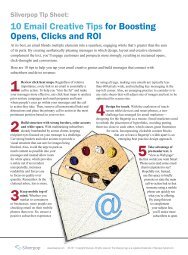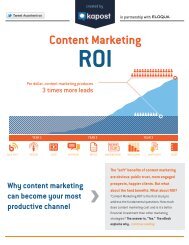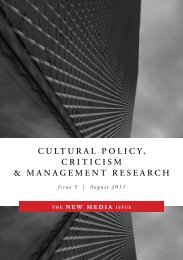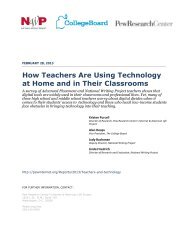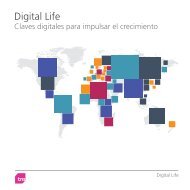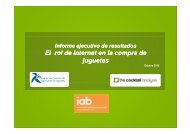Open Innovation 2.0 Yearbook 2013 - European Commission - Europa
Open Innovation 2.0 Yearbook 2013 - European Commission - Europa
Open Innovation 2.0 Yearbook 2013 - European Commission - Europa
Create successful ePaper yourself
Turn your PDF publications into a flip-book with our unique Google optimized e-Paper software.
programme (Figure 1). Participants were given the<br />
opportunity to interact with and prioritise seminar<br />
conclusions. They strongly supported the notion<br />
that practical work processes need to directly<br />
involve all relevant actors for open innovation to be<br />
a success. Participants concluded that ‘an innovation<br />
culture is essential for successful open innovation<br />
— equally as important as the focus on<br />
technology.’ In the words of Gohar Sargsyan, Senior<br />
Member of CGI Group Inc. and Steering Committee<br />
Member World Smart Capital: ‘Think big, start<br />
small, accelerate fast.’<br />
Figure 1: Virtual world for real-time workshop participation<br />
Building this innovation culture by leveraging the<br />
entrepreneurial spirit of Europe’s pioneering regions<br />
and directly engaging the diverse stakeholders of the<br />
innovation ecosystem in the practice of innovation<br />
is certainly one important step on the way forward.<br />
Espoo T3: Implementing the Knowledge<br />
Triangle in regional innovation ecosystems<br />
Knowledge Triangle<br />
The CoR proposes five specific measures to be<br />
applied as widely as possible in Horizon 2020<br />
programmes. One of these is the ‘Knowledge Triangle’,<br />
which should be one of the key principles<br />
throughout the entire Horizon 2020 programme,<br />
not just in the <strong>European</strong> Institute of <strong>Innovation</strong> and<br />
Technology (EIT). Each project should plan activities<br />
to implement the ‘Knowledge Triangle.’ This<br />
Knowledge Triangle (KT) — focusing on creating<br />
more synergy between research, education and<br />
innovation — has already been on the educational<br />
policy agenda for several years, but what does it<br />
mean in practice? The <strong>European</strong> Council, in its conclusions<br />
of 26 November 2009, stated the following<br />
regarding the development of the role of education<br />
in a fully functioning Knowledge Triangle:<br />
‘If the <strong>European</strong> Union is to be equipped to meet the<br />
long-term challenges of a competitive global economy,<br />
climate change and an ageing population, the<br />
three components of the knowledge triangle must all<br />
function properly and interact fully with each other.’<br />
The conclusions urged the EU and the Member<br />
States to establish the following seven priorities for<br />
action.<br />
1. Developing more coherence between policies in<br />
the field of education, research and innovation.<br />
2. Accelerating pedagogic reform.<br />
3. Partnerships between universities and business<br />
and other relevant stakeholders.<br />
4. Measures to develop an innovation culture in<br />
universities.<br />
5. Creating incentives for universities to develop<br />
transferable knowledge.<br />
6. New approaches to quality assessment.<br />
7. Developing the EIT as a model for the future.<br />
93



